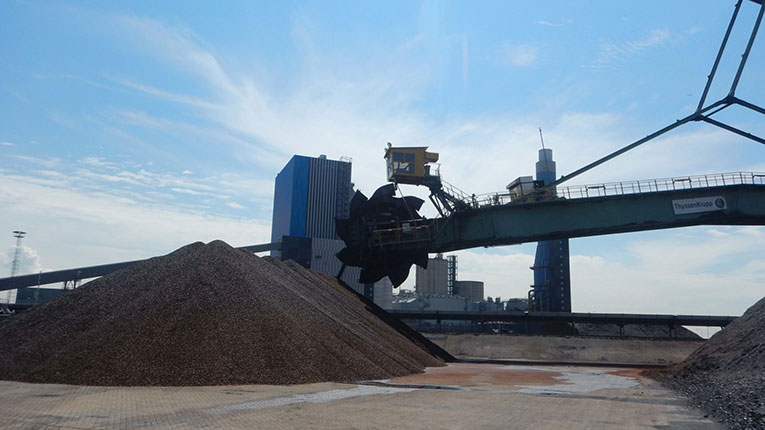Minister of Energy, Virgil Popescu and Bjorn H. Knappskog, General Manager of Arbaflame, signed a letter of intent on Tuesday to transform the activity of the CET in Paroşeni into a sustainable one in terms of CO2 emissions, in line with the objectives assumed by the Romanian Government to achieve the targets of the energy transition.
According to a press release from ME, the collaboration with Arbaflame, a Norwegian company, will involve the replacement of the coal that consists the main material for the operation of the Paroşeni Power Plant, with the pellets produced by Arbaflame, and, in the long term, includes the construction of a pellet production plant in Romania. These plants will use sustainable biomass resources, which will help reduce CO2 emissions by more than 90%.
“We promised, we did! Today we signed a historic agreement for the Romanian Energy System and for the Jiu Valley. This partnership involves a massive decarbonization, because we will replace the coal burned in CET Paroşeni with sustainably produced pellets, with a low rate of CO2 emissions.
It is a first step that we are taking for the Jiu Valley and we still have a long way to go…The tests will start in the first part of 2022, which makes us very close to the moment when the decarbonization of the Jiu Valley will start,” said Virgil Popescu, Minister of Energy.
Arbaflame is a Norwegian company that has developed a patented technology for pellets that share the properties of coal, but which burns with a significantly reduced amount of greenhouse gas emissions. Basically, Arbacore, the name under which pellets are known, can be transported, stored and handled in the same way as coal. Moreover, the same equipment, including that for spraying and burning fuel, can still be used. The energy density of Arbacore pellets corresponds to 76% of the energy value of coal, while white pellets have almost half of the energy value of coal. The Arbaheat project aims to develop and demonstrate a new concept for the cost-effective modernization of plants currently operating on fossil fuels, through the unique integration of a biomass heat treatment technology.
In 2015, Arbaflame transformed the Thunder Bay generating station in Ontario, Canada, which provides almost half of Ontario’s energy needs, with a generation capacity of over 16 GW. In a few months, the plant has switched from a coal-only base to a 100% renewable solution, sending a significant message to power companies around the world.
